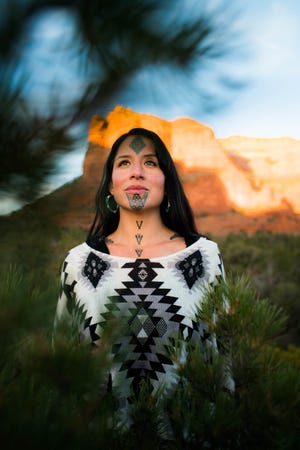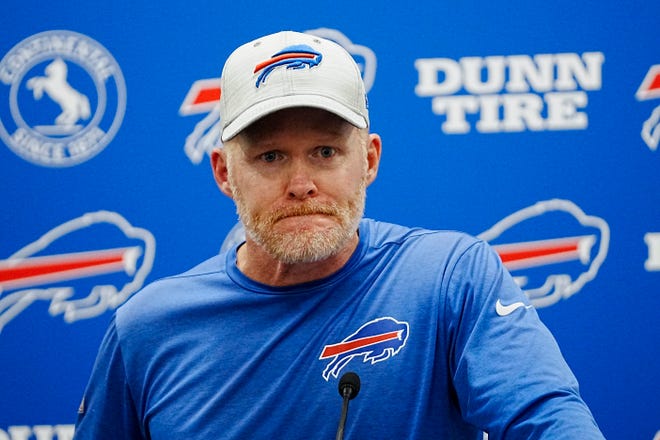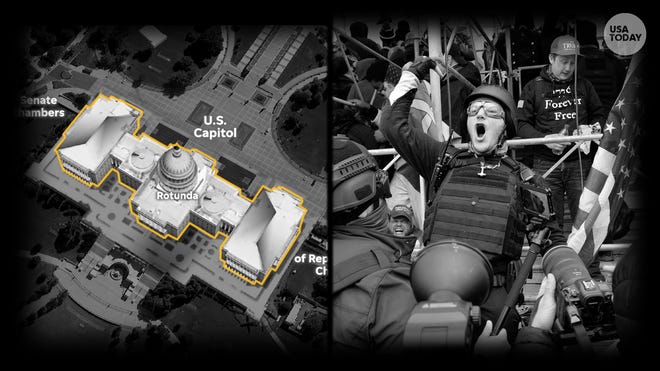
- Face tattoos have long been stigmatized but the stereotype ignores their cultural significance.
- These tattoos hold a significance for some Indigenous peoples.
- Many are reviving the tattooing tradition, centuries after it was almost wiped by colonization.
In today's society, face tattoos have traditionally carried a negative stereotype, and research has shown those with visible tattoos on their bodies are more likely to be viewed as unprofessional, unintelligent, less sociable and more sexually promiscuous.
But this stigma ignores the cultural significance and deeper history face tattoos have forcertain groups, especially Indigenous peoples.
Growing up, Stephanie Big Eagle knew very little about her heritage, even though she was aware her father was Lakota and Dakota Sioux and her mother was Irish, Norse and Mohawk.
But after reconnecting with her roots at a Sioux reservation in 2016, she felt inspired to honor her ancestors with her first face tattoo — a centuries-old tradition to visually mark one's Indigenous or Native American background.
Big Eagle, who has since become a handpoke tattoo artist, is proud of her facial markings on her forehead and chin, but she has received dirty looks, prolonged stares and hateful comments on social media.
"They'd say things like I ruined my face, nice beard, or that I'm stupid," Big Eagle recalls. Sometimes she would respond by sharing more about her traditions. Other times, she would delete those comments and block those responsible.
Along the way, she learned to "come to terms with the fact that I'll always be targeted by those who will not and cannot understand our traditions" — and she's not alone.

Recently, Indigenous women have made great strides to revitalize and destigmatize face tattoos. In December, New Zealand reporter Oriini Kaipara made history by becoming the first person to anchor news with a traditional Māori chin tattoo. Quannah Rose Chasinghorse, the 19-year-old Indigenous model and activist, also showcased her traditional Hän Gwich’in tattoos (called Yidįįłtoo) in Vogue as well as Savage x Fenty's ad campaign.
"This tradition is really old, but bringing it back is a new phenomenon," says Martha Kyak, an Inuit historian and fashion designer with Inuk Chic from Nunavut in Northern Canada. "It takes time to appreciate it… but when you understand the cultural significance of it, you can honor their choice in having that face tattoo and what it represents."
Original story:Māori broadcaster becomes first to anchor news with traditional chin tattoo
The demonization of face tattoos
For many Indigenous peoples, face tattoos are an ancient tradition. Historically, the meanings and designs varied for each group, but they typically represented family heritage, social status and a connection with the spiritual world. For women, they also signified important life accomplishments like one's first menstrual period.
"In Inuit culture, mostly women have these face tattoos that beautify them and make them complete. It's a form of empowerment for them," Kyak explains. "It can represent them going from a girl to a woman."
But this sacred rite of passage was vilified during western colonialism across North America, where many Indigenous cultural practices were banned. This included their artwork, language, jewelry, fashion, music and tattoos.
Columbus Day:Celebrating cultural heritage, or the colonization of Native Americans?
"All these things were taken away from us: Not just tattoos but also our way of life, how we raise children, how we educate our children, how we lived our lives back then. All these things were taken away and we had no more voice," Kyak says.
The past has colored how people view face tattoos today, Big Eagle says.
"Face tattoos served a dual purpose in many Indigenous cultures of beautification. In other words, they enhanced the beauty of those who wore them," Big Eagle notes. "But instead of being recognized as sacred and telling our stories, they've been twisted into markings that make us unemployable or delinquents or less-than."
'My tattoos are my identity.'
Recently, many Indigenous people are reclaiming the tattooing tradition that was almost "wiped away by western colonization."
Big Eagle says she consulted with Maori tā moko practitioners for her own face tattoos. The markings on her forehead symbolize "the long line of beautiful ancestors that I proudly come from," while those on her chin are connected to her role as "a matriarch of the family and a mother."
"My tattoos are my identity, and they're my commitment to my Indigenous ancestry and the path I've chosen to walk in my life," she explains. "Taking these markings on became my message not only to myself, but to the rest of the world of who I truly am and where I come from.

Many indigenous women like Big Eagle are reviving the practice, however, there are still barriers: Face tattoos are considered unconventional in today's society. That's why a better understanding and an open mind are crucial, Kyak says.
"When you're not used to face tattoos, it may seem different and unusual, but it was part of a sacred tradition that seems to be coming back and empowering indigenous people in knowing who they are and who they represent," she says.
"I'm happy to see this revitalization and the pride of who we are and not being ashamed anymore and having a voice that was taken away from us by showing our tattoos."
What does 'Two-Spirit' mean?:What to know about Two-Spirit, indigenous LGBTQ identities









